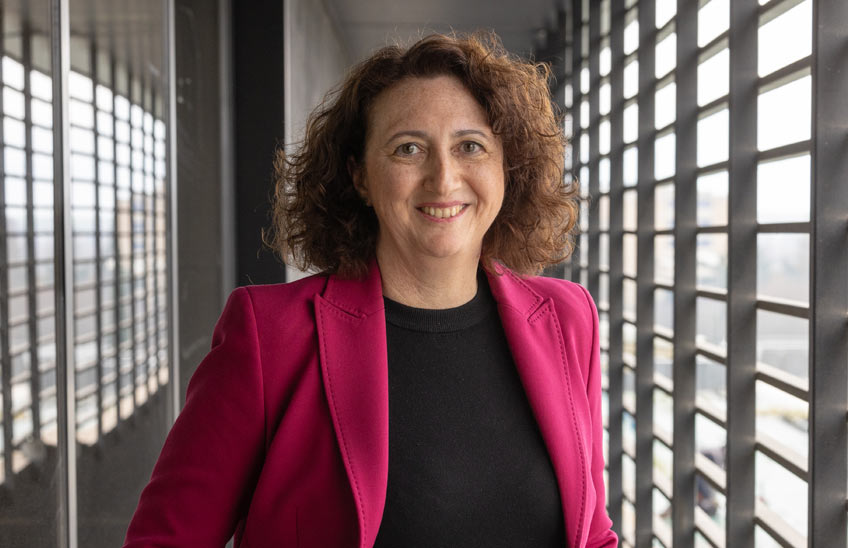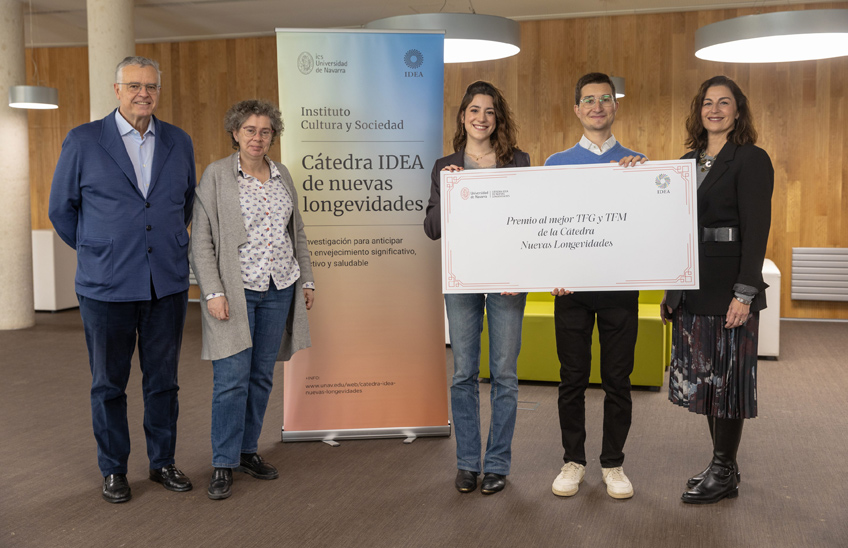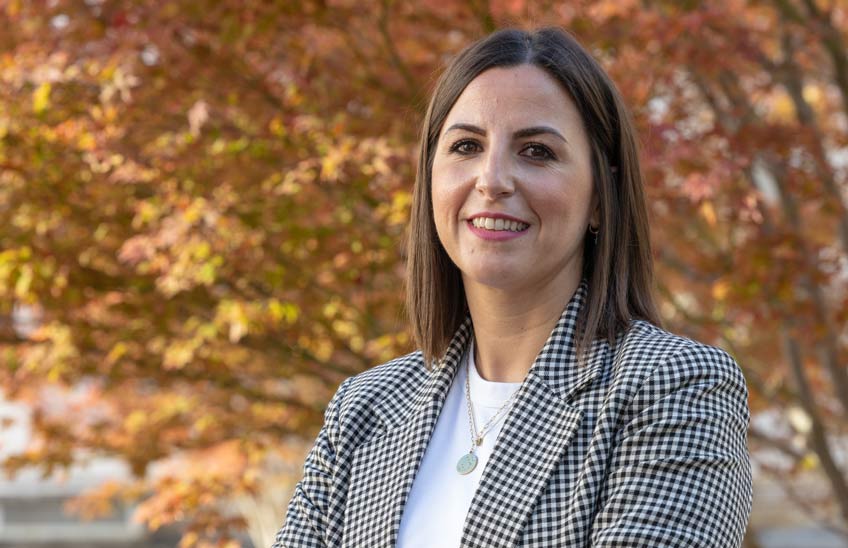Meaningful personal relationships: a vaccine against individualism and loneliness in the elderly
The VII lecture of the Chair IDEA on New Longevities dealt with individualism as a new challenge of demographic aging.

FotoManuel Castells<br>/La Cátedra IDEA de Nuevas Longevidades se enmarca en el Instituto Cultura y Sociedad de la Universidad de Navarra
26 | 09 | 2025
Dolores López-Hernández, Professor of Human Geography at the University of Navarra, has given the VII lecture of the Chair IDEA of New Longevities entitled 'An intergenerational society? The role of relationships in the society of individualism'. For the expert, one of the greatest challenges of demographic aging is to recover the value of relationships, something necessary for a full and meaningful old age. However, she warned that meaningful relationships are at risk in a society that is increasingly individualistic, materialistic and focused on success. Utilitarianism, narcissism or the use of technology, among other factors, "has progressively isolated us and created markedly individualistic habits". Being older in such an individualized society generates challenges that did not exist 100 years ago.
According to the survey of European values, in Spain, more than 90% of the population affirms that the most important thing is the family. However, although the family continues to be valued, the professor regretted that individualistic logics are increasingly taking precedence. We live in a very fast-paced society where we have lost space to share, to take it easy, to talk," she said. Our agendas are full and we share less space and time with the people around us and, especially, less time with the elderly".
This has as a consequence a significant increase in loneliness, which occurs even in coexistence spaces. For López-Hernández, it is necessary to analyze the implications of the loss of ties for all people, giving priority to young people and the elderly. He explained that the elderly, in their childhood and youth, have lived in societies with very strong ties, so their family background makes them feel even more the absence of ties. On the other hand, children and young people are living a crucial stage for their development staff with very liquid personal relationships, to use Bauman's expression.
The professor also pointed out that the structure of families has changed and the family nucleus has diminished: there are fewer children, brothers and sisters, fewer uncles and aunts... However, at the same time, there are more generations living together biographically. Never have so many generations lived together at the same time. The value of the family is still important, even though its structure has changed and we spend less time with each other.
Commitment to value relationships
This is also a positive aspect: "There are more and more intergenerational experiences and a greater role for the elderly in the active society, in the society of volunteer activities". The third age is set at 65, the traditional retirement age, but people are reaching this age with better health and more economic means, opening up new possibilities for these generations.
The elderly population is becoming increasingly important in society as a whole and is becoming more diverse and heterogeneous. Old age has traditionally been marked by retirement, the age of 65, but this age is being reached with better health and more economic means, and at the same time the issue of centenarians has increased. It is necessary, says López-Hernández, to develop strategies to show society that the core topic of social cohesion, of people's happiness, lies in the quality of personal interpersonal relationships. For the expert, we all need meaningful relationships, the elderly as much or even more, because they have more time and are more alone.
"Today, being older is an opportunity to develop strategies and to show society that what enriches us are personal relationships, as opposed to individualism," she said. For the expert, we all need meaningful relationships, the elderly as much or more, because they have more time or are more alone.
One way to improve the quality of interpersonal relationships is through growth staff in gratitude: "We live in a society where it seems that everything is owed to us. A very critical and polarized society. Gratitude, among other values, is an injection against individualism", he emphasized. This virtue financial aid us to be aware, to stop and think and to recognize how important others are in my daily happiness. In fact, there are numerous medical programs of study that point out how gratitude increases positivity, altruism and happiness and financial aid us to value real life and not the unreal world that appears on the networks. "Gratitude financial aid us to understand and value others as unique and unrepeatable, and to accept and love them in spite of their limitations; limitations that we also have", he pointed out.
The impact of care
For López-Hernández, meaningful aging begins in childhood: "You age as you live and you learn to age in a meaningful way when you discover throughout your life, especially in your youth, the meaning and purpose of your life and the importance of sharing life". He also considered it important to be aware of the passage of time and the fact that you are getting older. Logically, it does not depend only on oneself, since relationships are bidirectional. The family and social network must be aware of the limitations and needs for companionship at this time of life. "We are living more and more years in dependence and this has a great impact on the whole family network ," he said.
In this context, he emphasized the value of care. He lamented the drama of elderly people who are alone because they have no family or because the family is unable or unwilling to care for them. The value of care is also essential to learn from childhood and, therefore, he pointed out the importance of involving grandchildren in the care of sick grandparents. "Care is a core topic to value each individual as unique and unrepeatable, regardless of his or her state of health," he said. This also highlights interpersonal relationships, which enrich both the giver and the receiver. The expert concluded that "it is necessary to value the logic of gift over the logic of self and, in this way, we will have an enriching and authentic intergenerational society.



